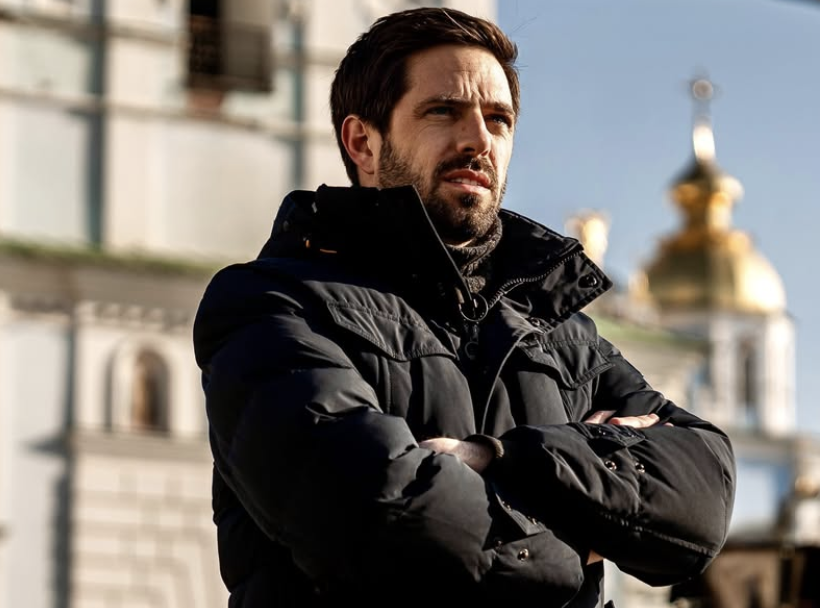Hungary-Ukraine Diplomatic Tensions: A Growing Rift
The diplomatic relationship between Hungary and Ukraine has reached a boiling point, with accusations and counter-accusations flying back and forth. On February 11, Hungarian Deputy Foreign Minister Levente Magyar embarked on a visit to Kyiv, where he levied serious allegations against Ukrainian officials. Magyar claimed that Ukraine was orchestrating a "slanderous campaign" against Hungary, a charge he backed by stating that Hungarian intelligence services had gathered evidence of such a campaign. This accusation, however, was not accompanied by any concrete evidence, raising eyebrows among observers. Magyar also used the opportunity to express Hungary’s resolve to protect its interests, asserting that no external influence would be tolerated. The visit was ostensibly aimed at seeking "explanations" from Ukrainian authorities and discussing Budapest’s "possible response" to these allegations.
Hungary’s Pro-Russia Stance and Its Implications
Hungary’s criticisms of Ukraine are not new, and they often align with narratives promoted by the Kremlin. Budapest has long been regarded as one of Moscow’s key allies within the European Union, a stance that has put it at odds with other EU member states. Under the leadership of Prime Minister Viktor Orban, Hungary has consistently blocked or delayed EU aid to Ukraine, including sanctions against Russia following its invasion in 2022. This pro-Russia posture has not gone unnoticed, and it has led to significant friction between Hungary and other European nations. Moreover, Hungary and Slovakia, another key Russian ally in Europe, have both accused Ukraine of backing hostile campaigns aimed at destabilizing their governments. Both nations are heavily reliant on Russian gas, a dependence that was brought into sharp relief when Ukraine recently ceased transporting Russian gas to Europe via its territory.
The Ethnic Minority Question: A Point of Contention
One of the key issues driving the current tensions between Hungary and Ukraine is the treatment of ethnic Hungarians living in Ukraine. Magyar accused Ukrainian authorities of restricting the rights of Hungarians in Zakarpattia Oblast, a region bordering Hungary. Budapest has repeatedly alleged that Kyiv is discriminating against the Hungarian minority in southwestern Ukraine, a charge that Ukraine has steadfastly denied. These accusations have been a recurring theme in Hungarian-Ukrainian relations, with Hungary often taking a protective stance toward ethnic Hungarians abroad, a policy that has sometimes led to clashes with neighboring countries. Magyar’s visit to Kyiv was, in part, an attempt to address these issues and demand greater protections for the Hungarian minority in Ukraine.
Hungary’s Perception of Betrayal
Magyar also expressed a sense of betrayal on Hungary’s part, stating that Budapest had been "stabbed in the back" by Ukraine despite its efforts to coordinate humanitarian support following Russia’s full-scale invasion in 2022. This sentiment reflects a broader perception within the Hungarian government that its efforts to assist Ukraine have not been adequately reciprocated, and that Ukraine has instead chosen to pursue policies detrimental to Hungarian interests. This narrative has been used to justify Hungary’s reluctance to provide further aid to Ukraine and its ongoing opposition to EU sanctions against Russia. The tone of betrayal underscores the deepening mistrust between the two nations and highlights the challenges in maintaining a united European front in support of Ukraine.
A Shift in Europe’s Leadership on Ukraine’s Defense
As tensions between Hungary and Ukraine continue to escalate, the broader European response to the conflict is undergoing a significant shift. The United Kingdom is set to take on a more prominent role in coordinating international support for Ukraine, with plans to host the Ukraine Defense Contact Group on February 12. This move comes as the United States, under President Donald Trump, has increasingly distanced itself from established international agreements and formats, leaving a leadership vacuum that the UK is now seeking to fill. The UK’s assumption of this role reflects a broader reorientation of European security policy, with individual nations stepping up to fill the gaps left by a less engaged United States.
The Road Ahead: Challenges and Uncertainties
Looking forward, the relationship between Hungary and Ukraine seems unlikely to improve in the near term, given the deep-seated mistrust and competing interests at play. Hungary’s ongoing alignment with Russia, combined with its accusations against Ukraine, poses significant challenges for European unity and the_coordination of support for Ukraine. Meanwhile, the shift in leadership within the Ukraine Defense Contact Group underscores the evolving nature of international relations in the face of ongoing conflict. As the situation continues to unfold, the ability of European nations to present a united front will remain a critical factor in shaping the outcomes of the conflict in Ukraine and beyond.












